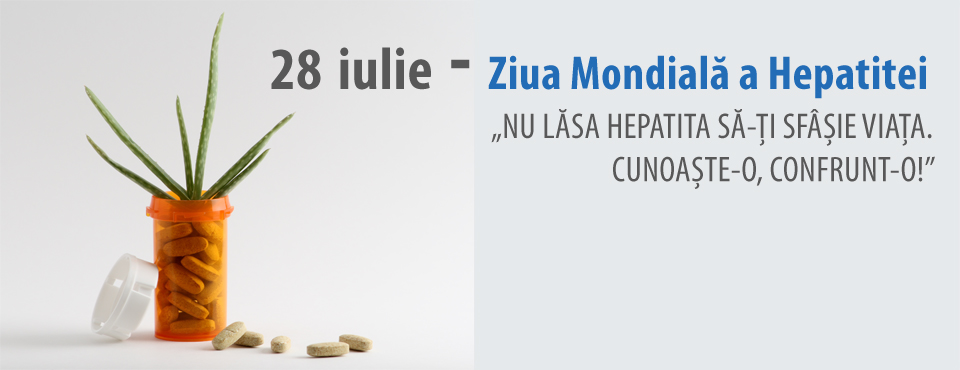Chisinau Dialysis Center, within the context of the Fight Against Hepatitis World Day celebrated internationally on July 28, joined the campaign of informing the general public about the importance of preventing viral hepatic diseases. These illnesses, particularly, for the patients whose life depends on dialysis machines, complicate the treatment of renal function substitution and minimize the chances for kidney transplant.
Worldwide, around 400 million people live with hepatitis B and C, 95% of the people who live with viral hepatitis are unaware that they are infected; 1.4 million people annually die because of these infections; this means about 4,000 people per day, while there are medicines able to save their lives.
About a third of the total number of patients in the Republic of Moldova, included in the dialysis, are diagnosed with chronic hepatic viral infection, which is several times more than in some European countries, but twice less than ten years ago.
In order to reduce the risk of infection, Chisinau Dialysis Center is carrying out a range of measures, which earlier were less put into practice by the medical institutions of the Republic of Moldova.
“In our Dialysis Center, for the first time in Moldova, the patients subject to dialysis are separated according to hepatic status. Each device has a special mark (“Abs”, “B”, “BC” or “C”), indicating the status of patients, subject to dialysis on this device. At least once in six months, the existence of chronic hepatic viral infections of patients included in dialysis are checked through laboratory tests. The vast majority of hepatic patients are undergoing dialysis in different boxes (“with” and “without” hepatic viral infections, thus minimizing the risk of being infected). Also, between work shifts, all dialysis machines are subject to compulsory disinfection”, stated Mr. Petru Cepoida, medical director of Chisinau Dialysis Center.
The list of measures to minimize the risk of infection is supplemented by the replacement of blood transfusion by administration of erytropoietine (medical preparation).
Earlier, a patient included in dialysis, for normalization of hemoglobin level needed in average six blood transfusions per year. The risk of being infected with hepatic viruses was big.
“At the Dialysis Centre, instead of previously used blood transfusions (1 hemo transfusion to 15 dialyses), renal anemia is compensated by administration of erytropoietine that increases the production of erythrocytes by the patient’s body. Thus, the risk of infection with hepatitis B and C is avoided and at the same time the normalization of patients’ hemoglobin on dialysis is achieved: the weight of patients on dialysis without anemia grew up from 7-10% to 70-75%”, said Mr. P. Cepoida.
All undertaken taken measures to decrease the risk of infection with hepatitis are extremely important because the treatment of patients on dialysis with positive status is more complicated than that of those not affected by hepatitis. Moreover, for some patients renal transplant becomes impossible since they are suffering from hepatitis.
“Finally, the importance of hepatic surveillance of patients on dialysis cannot be underestimated. Before kidney transplant the patient, infected with viral hepatitis B or C, have to undertake an antiviral treatment. In addition, there is the recently launched state program, which provides free antiviral treatment for these patients. This is absolutely necessary for those aspiring for a kidney transplant. At present, there are 29 such patients at the “BB-Dialysis” Centre, three of them have already been administered antiviral treatment”, mentioned Mr. P. Cepoida.
It’s worthy to remind, that according to the Ministry of Health, in 2016, for the first time, medicines for treatment of 7 times more patients with chronic hepatitis and hepatic viral cirrhosis type B, C, D were procured. The cost of medicines was 35 million lei – financial resources provided for the implementation of the national program on fight against hepatitis (B, C and D).
World Day of Fight Against Hepatitis is an annual event focusing the attention of the world on groups of patients and people living with viral hepatitis. It is a global opportunity to draw the attention and to induce a real change in prevention of diseases and to provide access to testing and treatment.



